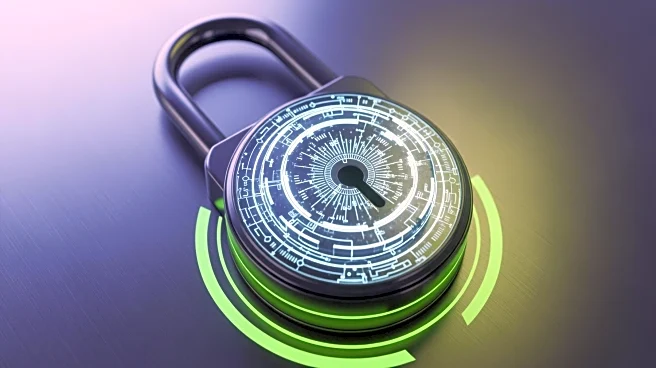What's Happening?
The increasing complexity of lock systems, including digital and self-locking mechanisms, is creating a dilemma for consumers. A recent exploration into the reasons behind common lapses, such as locking oneself out, highlights the role of prospective
memory failures. According to a study by the Association for Psychological Science, these lapses occur when routine tasks are disrupted by stress or distractions. The study suggests using external memory aids like phone alerts and visual cues to mitigate these issues. The variety of lock options available today, from traditional padlocks to advanced digital systems, adds to the decision-making burden for consumers. Each type of lock offers different levels of convenience and security, but none are foolproof, leading to a mix of convenience and chaos.
Why It's Important?
The proliferation of lock options reflects broader trends in consumer technology and security. As homes become more connected and automated, the demand for advanced security solutions grows. However, the complexity of these systems can lead to decision fatigue, a phenomenon where the abundance of choices overwhelms consumers. This can impact the adoption of new technologies, as users may revert to simpler, more familiar options. The security industry must balance innovation with user-friendliness to ensure that technological advancements do not become barriers to effective security. The implications extend to manufacturers, who must consider user experience in their designs, and to consumers, who must navigate these choices to protect their homes effectively.
What's Next?
As the market for home security systems continues to evolve, manufacturers are likely to focus on integrating user-friendly features with advanced security technologies. This could include developing systems that are easier to manage and less prone to user error. Additionally, there may be an increase in educational efforts to help consumers understand and effectively use these technologies. The industry might also see a push towards standardization to reduce complexity and improve interoperability between different systems. Consumer feedback will play a crucial role in shaping future innovations, as companies strive to meet the needs of a diverse user base.
Beyond the Headlines
The shift towards digital and self-locking systems raises questions about privacy and data security. As locks become more connected, they may collect and store data about user habits and access patterns. This data could be vulnerable to breaches, highlighting the need for robust cybersecurity measures. Furthermore, the reliance on technology for basic security functions underscores the importance of maintaining traditional skills and backup systems. In an era of increasing automation, ensuring that users retain control and understanding of their security systems is essential.
















